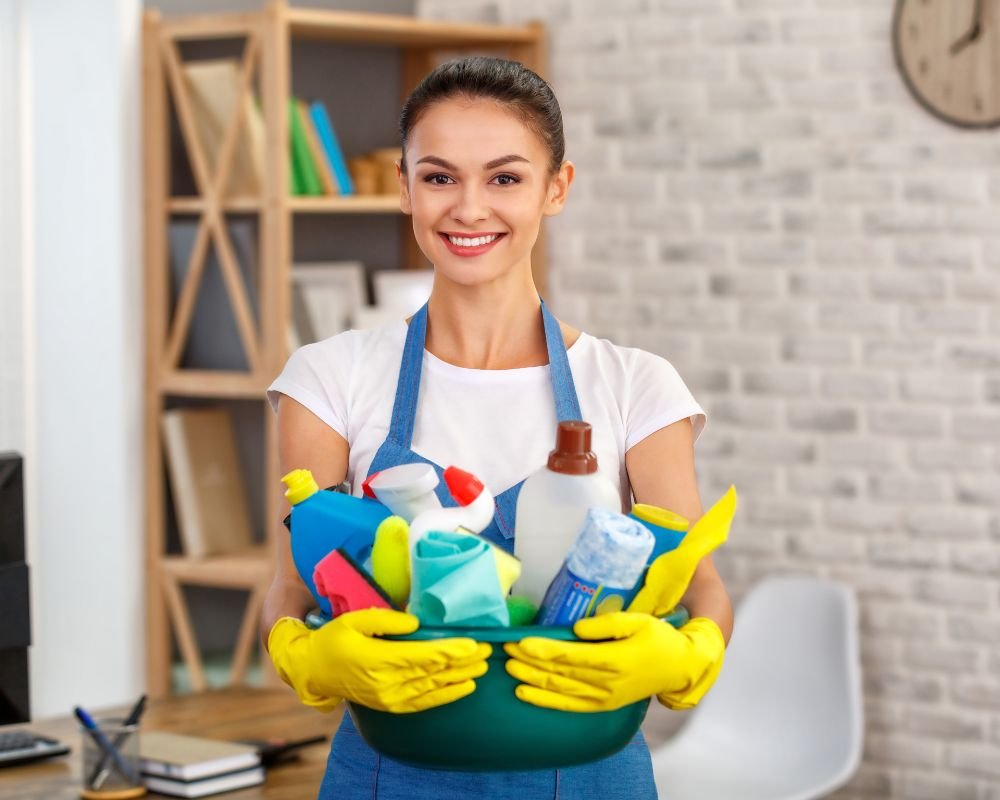High quality cleaning chemicals make our job as business and industrial cleaning specialists much easier. Things like ammonia and hydrogen peroxide can do wonders in the effort to make a dirty space look sparkling clean. But all cleaning chemicals must be used safely. Proper safety includes never mixing chemicals. The dangers of doing so are very real.
Whether your company outsources commercial cleaning services or maintains an in-house team to keep the place looking clean, it’s important that those with access to cleaning chemicals fully understand the dangers of mixing them. Otherwise, health can be compromised and property damaged.
Mixing Bleach and Ammonia
The one mixture most people know to be dangerous is that of bleach and ammonia. We’ve seen enough local news stories to know what happens when the two chemicals are combined in a bucket or sink: they create a dangerous cloud of chloramine vapors. Chloramine can burn the throat and eyes. It can cause severe respiratory problems.
You are probably aware that product labels specifically warn against mixing bleach and ammonia. Yet for some unknown reason, people either don’t read labels or they ignore them. Either way, bleach and ammonia are not good friends. Getting them together usually results in seriously negative consequences.
Be Careful with Bleach at All Times
A general rule of thumb with bleach is to be careful with it at all times. You shouldn’t just keep it away from ammonia. Bleach should never be mixed with isopropyl alcohol, drain cleaners, or even vinegar. Just don’t mix it with anything and there won’t be any worries about creating toxic vapor clouds.
When cleaning with bleach, remember that it doesn’t play well with every surface. Bleach is very corrosive. It is also damaging to things like linoleum and vinyl. It should be used sparingly as a cleanly agent.
More Harm Than Good
The overriding theme here is that mixing cleaning chemicals can do more harm than good. For this reason, commercial cleaning services tend to utilize separate and distinct cleaning products for different jobs. We just avoid mixing chemicals altogether.
The wrong chemicals can harm what we are trying to clean. Worse yet, some of the harm done by chemicals that aren’t suitable for a particular job can’t be seen with the naked eye. Damage occurs behind the wall or under the floor. It is not until said damage leads to catastrophic failure that anyone knows something is wrong.
The best advice we could give to in-house cleaning teams and facility management companies is to choose cleaning chemicals wisely. Never assume that a cleaning chemical is appropriate for a particular job. Always read labels and follow instructions. And if you don’t know what chemical is most appropriate for the job at hand, do a little research before making a choice.
Employees Should Be Properly Trained
A good way to wrap this up is to remind readers that all employees who use cleaning chemicals should be properly trained in how to do so safely. Do not assume that industrial, business, and office cleaning is a simple task anyone can do with a couple of rags and some window cleaner. It doesn’t work that way.
Commercial cleaning services utilize chemicals, tools, and cleaning strategies not found in the home. Doing things safely requires training. If employees are not properly trained, they are putting themselves and others at risk.
Remember, not all cleaning chemicals are created equal. They don’t all play well together, either. Never mix cleaning chemicals under any circumstances. The risks of doing so are very real and very much worth avoiding.



